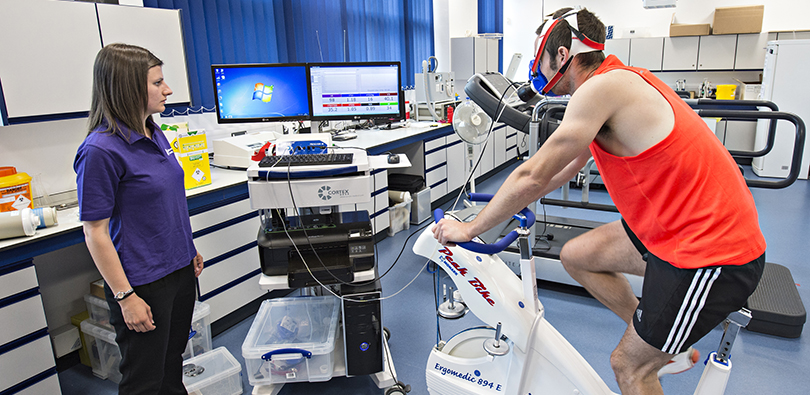
A regional consortium comprising three NCSEM-EM partners is to receive a slice of the UK’s largest ever investment into health research announced today by Health Secretary Jeremy Hunt.
The consortium featuring Loughborough University and the University of Leicester, and led by University Hospitals of Leicester (UHL) NHS Trust, will receive over £11m to establish a Biomedical Research Centre (BRC) focusing on cardiovascular, respiratory and lifestyle conditions.
It is one of 20 NHS and University partnerships across England to receive part of a record £816 million in a five-year funding package (via the National Institute for Health Research) to develop new, ground-breaking treatments, diagnostics, prevention and care for patients in a wide range of diseases.
Health Secretary, Jeremy Hunt said: “The UK has so often led the world in health research – from the invention of the smallpox vaccine to the discovery of penicillin and the development of DNA sequencing. Today, we are making sure the UK stays ahead of the game by laying the foundations for a new age of personalised medicine.
“We are supporting the great minds of the NHS to push the frontiers of medical science so that patients in this country continue to benefit from the very latest treatments and the highest standards of care.”
At Loughborough University, scientists will research how physical activity can help prevent and manage obesity, cardiovascular disease, chronic kidney disease and Type 2 diabetes.
Researchers will trial a wide range of lifestyle interventions to determine the dose, frequency, intensity and duration of physical activity needed for the prevention and management of these conditions as well as elucidating the underlying mechanisms of action.
Professor Mark Lewis, Dean of the University’s School of Sport, Exercise and Health Sciences said: “We know that exercise can reduce the risk of disease, but this funding enables us to dig down into the underpinning science behind why it works. Once we do that, convincing the public of the life-improving benefits of exercise becomes a much easier job.
“At Loughborough we are able to draw upon our extensive research and knowledge in sport and exercise to validate its role in disease prevention and management. Being one of just a handful of top universities across England to receive part of this record-breaking funding reaffirms our position as a leading research intensive university.”
John Adler, Chief Executive at Leicester’s Hospitals, said: “We are delighted that we have been selected as one of the NIHR’s Biomedical Research Centres. This reflects our strong track record in research and our effectiveness in translating that research into clinical practice, particularly in the fields of cardiovascular, respiratory and lifestyle research.
“We worked in partnership with the University of Leicester and Loughborough University to produce our bid and we are confident that this partnership will continue to flourish in the future. I am very grateful to the leadership and staff in our existing Biomedical Research Units for all their hard work in gaining this well-deserved recognition.”
The BRC will develop the work of the existing Leicester-Loughborough Diet, Lifestyle and Physical Activity Biomedical Research Unit, a five-year partnership between Loughborough University, UHL NHS Trust, and the University of Leicester to drive innovation in the prevention, diagnosis and treatment of ill-health and translate advances in medical research into benefits for patents.
There will also be a joint Biomedical Research Centre involving The University of Nottingham and Nottingham University Hospitals NHS Trust focusing on deafness and hearing loss; gastrointestinal and liver disease; respiratory medicine, musculoskeletal disease and mental health technology – find out more.